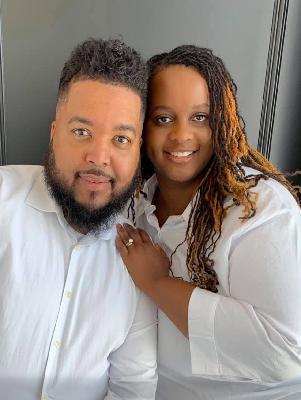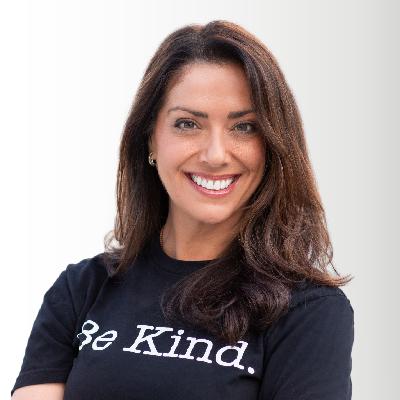Discover Parenting for the Future
Parenting for the Future

Parenting for the Future
Author: Petal Modeste
Subscribed: 56Played: 392Subscribe
Share
Description
Parenting for the Future helps parents understand - the phenomena that will shape the world in which their children will come of age and the science and strategies for raising their children to find their own voices so that they can thrive and shape that world in their unique way.
102 Episodes
Reverse
In this Episode you will learn about: The Microschool movement Colossal Academy Non-traditional learners and microschools How every learner can thrive in microschools How microschool students perform on standardized test The global education gap Why Microschooling may be the future of learning "Optimistic Edu-futurists"
In this Episode you will learn about: The Onyx Family origin story How Onyx built a multi-million-dollar YouTube franchise The role of faith in building a business for positive impact AI and the entertainment industry Opportunities to have positive impact on social media The importance of "finding your lane" Beyond YouTube – how to build a sustainable, scalable entertainment brand Why the world needs more entertainers who spread love
In this Episode you will learn about: The number of children around the world who are grieving the death of a parent or caregiver How children experience grief Ramifications of unaddressed grief How families and communities can support grieving kids What schools can do to better support grieving children Strategies parents and caregivers can use to help their kids understand and accept the inevitability of death Weekend camps for grieving families Resources created by grieving kids for grieving kids The work of Experience Camps to allow grieving children to embody lives full of hope and rich with possibility
In this Episode you will learn about: The definition of "bias" Surprising forms of bias The roots of biases The ages biases begin to emerge Culture-based Counter Transference The Crawford Bias Reduction Theory The LETUP model Strategies parents can use to reduce bias
In this Episode you will learn about: • How hope, love and connection are the most wonderful gifts from stories • How stories can shape our experience in the world • How a change of scenery can change one's life • Why we should read aloud to our kids • The authors who most profoundly influenced Kate DiCamillo • How parents can raise children who have an insatiable love of reading
In this episode you will learn about: Philosophy – what it is and how it can help us navigate a complicated world How racism shaped the Philosophical Canon The Less Commonly Taught Philosophies (LCTPs) Immanuel Kant's influence on the Philosophical Canon Why teaching Indigenous, African, East Asian, South Asian, and LGBQ+ philosophical traditions can help solve complex problems How philosophy helps us disagree without demonizing How to help your kids develop a philosophical mindset
In this Episode you will learn about: The genesis and work of Born This Way Foundation The link between kindness and mental health The power of a public health approach to mental wellness Why youth advisory boards are crucial for the success of youth mental health initiatives The "Be There Certificate", a free, online mental health course The LGBTQ+ Study by Born This Way Foundation and Hope Lab
In this Episode you will learn about: Acute myeloid leukemia The role of a father in shaping a life "Remaindered" kids The far reach of a mother's love How musicals can anchor a parent-child relationship The power of the "village" in raising a child
In this Episode you will learn about: The meaning of "financial independence" How your upbringing influences your attitude towards money Why it is important to talk about money with your kids How an allowance can help kids understand money/finance The three phases of your financial life How to protect your earnings Various types of insurance Trusts Asset allocation and asset location Taxable, tax deferred and tax-free investments How to prepare to financially care for older parents/family members
In this Episode you will learn about: Diana Chao's journey Letters to Strangers The power of youth for youth mental health support Culture Bound Syndromes The importance of family mental health conversations The psychopharmaceutical industry How community and connection save lives
In this Episode you will learn about: Sewell Setzer Character.AI How AI Companions impact our kids/a child's brain The relationship between Character.AI, Google LLC and Alphabet, Inc. Warning signs to look out for when your kids have AI Companions Large Language Learning Models Anthropomorphic AI
In this Episode you will learn about: ABSee Me Why kids need windows and mirrors to learn Why seeing themselves in their classroom is crucial for every child Why learning materials that reflect the class are the most powerful Goldman Sach's One Million Black Women – Black in Business program Emirates National Schools What parents can do to ensure their child is represented in their learning materials
In this Episode you will learn about: The U.S. foster care system Why kids go into foster care Reunification – pros and cons The foster parenting experience The work of a case/social worker The role teachers play in the foster care system How fostering can change a child's life for the better Strategies to improve foster care for all involved What you can do to help kids in foster care
In this Episode you will learn about: The meaning of intelligence The scientists who developed IQ tests How racism and discrimination shaped the IQ test Eugenics Why standardized tests don't measure intelligence IQ tests most frequently used in the US How IQ tests shape the lives of kids with Down Syndrome and other conditions How to advocate for fairer measures of intelligence
In this Episode you will learn about: The definition of "body image" Why body image impacts every aspect of our lives How mothers influence their children's body image How culture and geography impact body image Eating disorders Disordered eating Diet culture How to listen to our bodies and teach our kids to do the same The Health at Every Size movement "Embodiment" The effects of social media on body image FACE: A tool to avoid the comparison culture of social media
In this Episode you will learn about: The definition of "citizen" Why U.S. schools have failed to teach civics or what it means to live in and support a democracy The ramifications of not understanding our political system How to overcome obstacles to talking to your kids about politics 4 questions to ask your kids when they show interest in politics How to help our kids if they express extremist of violent political views How to register your child vote How our kids are advantaged by learning about our political system and government The basic information you need to start conversations about politics with your kids
In this Episode you will learn about: Why short, consistent positive messages and actions can meaningfully improve mental wellness How to develop a gratitude habit and teach your kids to do the same Gratitude journaling The Gratitude challenge Dream journaling How texts can promote mental health How AI can save lives
In this Episode you will learn about: The reasons all kids should learn programming Hedy, a free, opensource platform to teach kids textual programming The role of natural languages in teaching programming How parents can teach themselves programming The Codasium Program Efforts to make programming a mandatory subject in K-12 schools Why gender stereotypes have no place in STEM education
In this Episode you will learn: The meaning of educational displacement Why children need to see themselves and their experiences in the places they learn Why identity is a story and not a category How hate takes root The relationship between "othering" and radicalization How the suffering of one child can cause many to suffer How interfaith collaborations and conversations can irradicate hate The power of every person's story How we can build resilience to hate
In this Episode you will learn about: How parents can raising confident, curious, human-centered people The life-shaping power of books and conversations Civic journalism Keys to rebuilding trust in the press and key institutions Why hope is a muscle and how we can make it strong
























